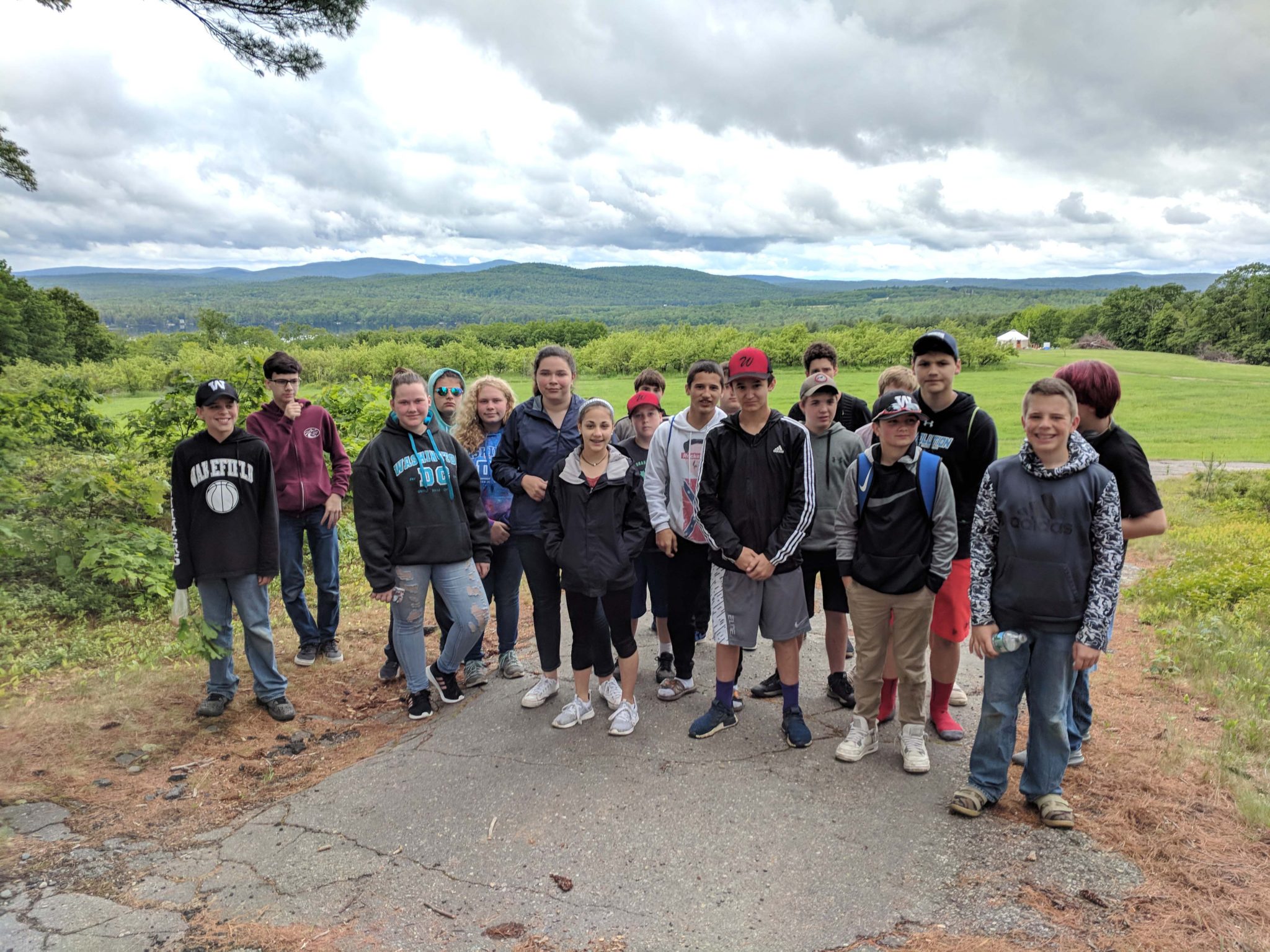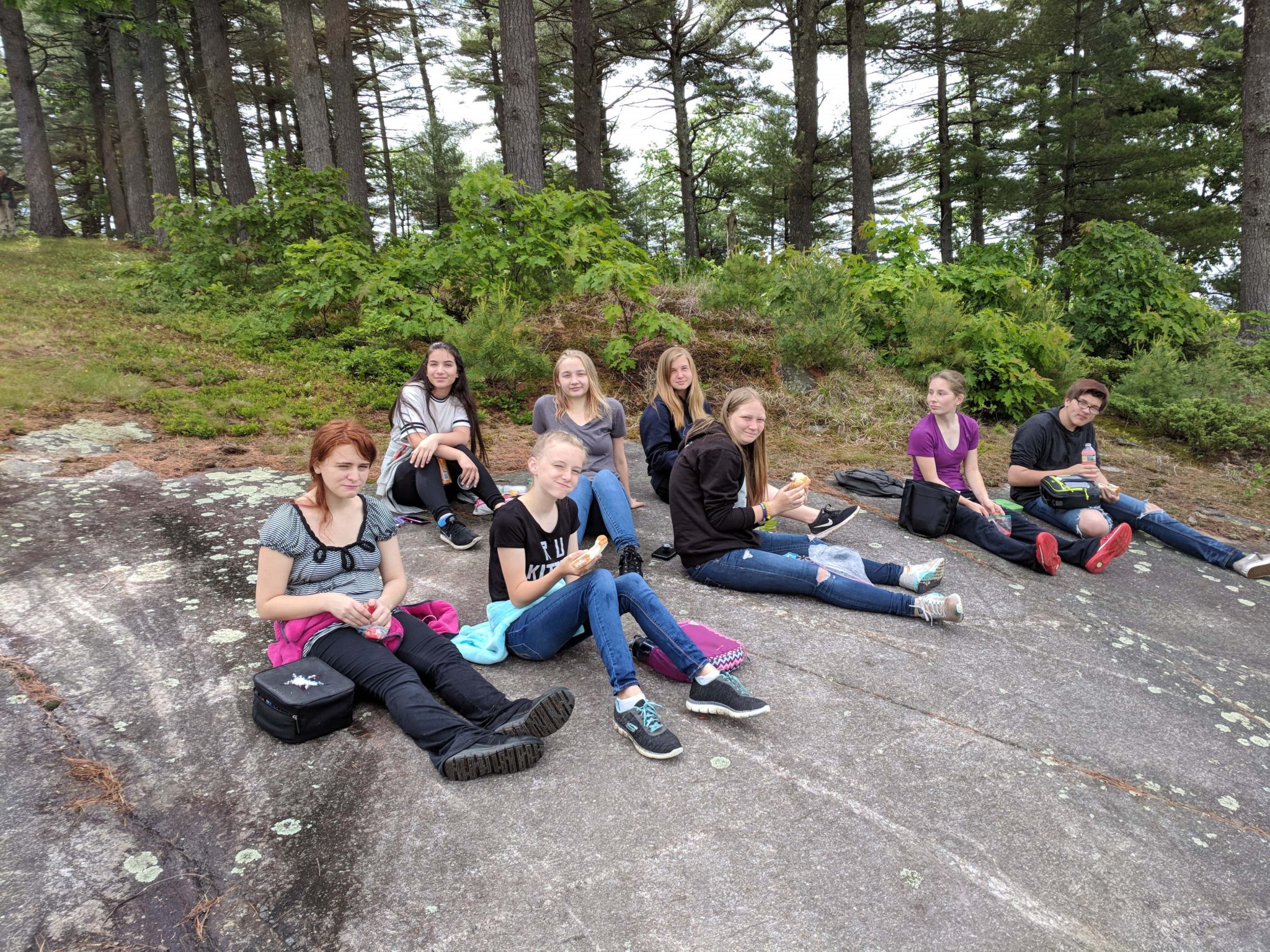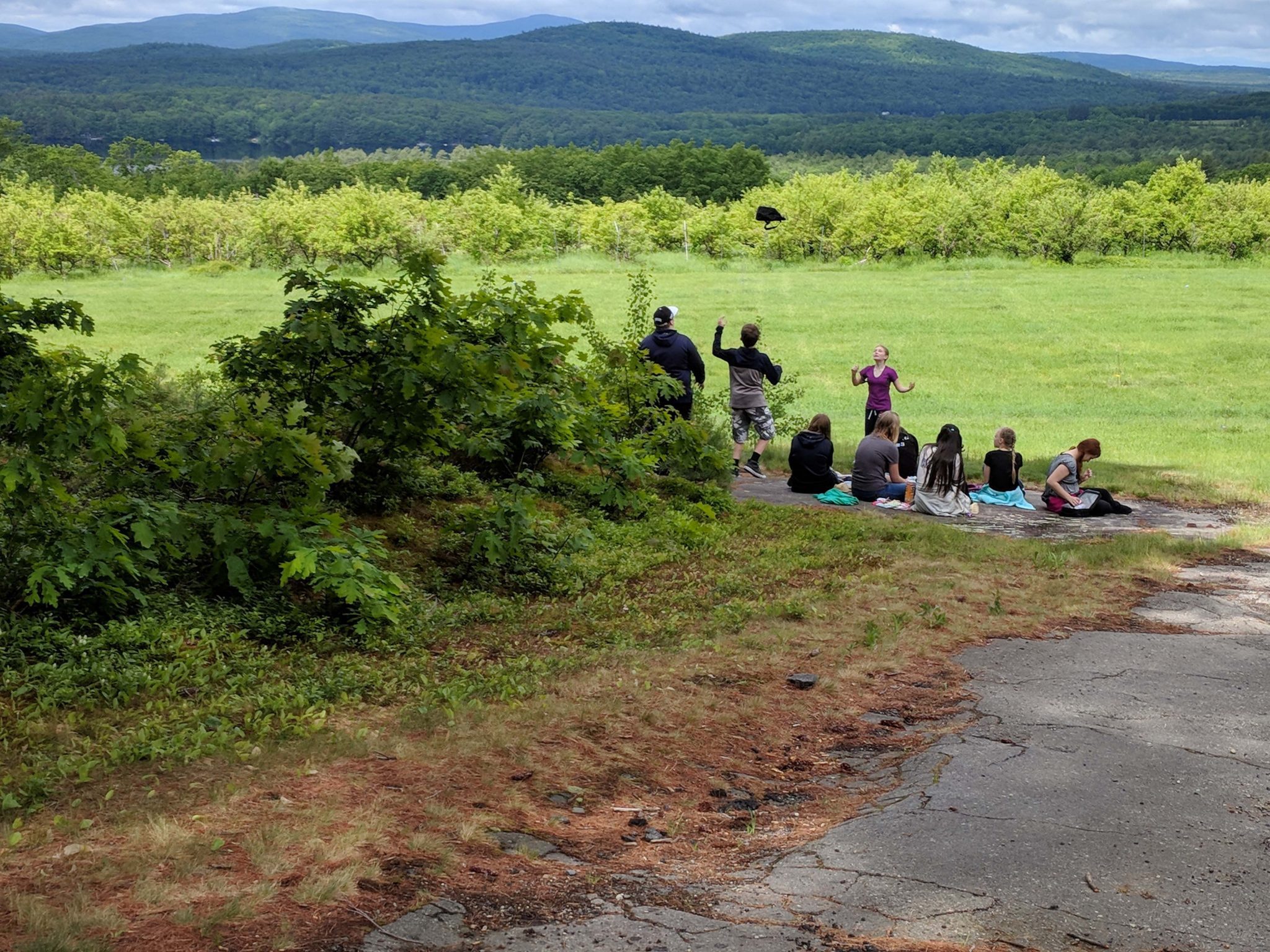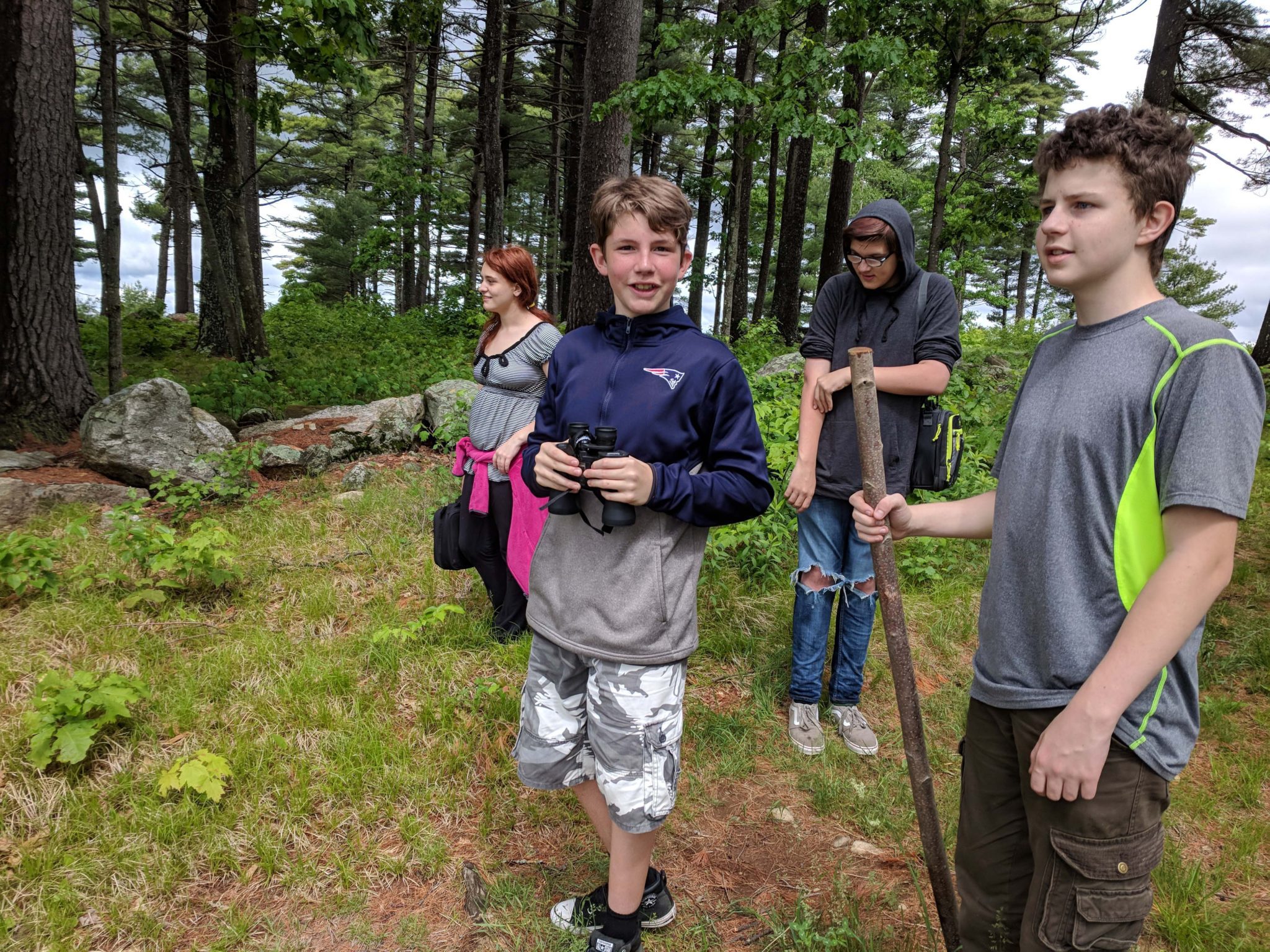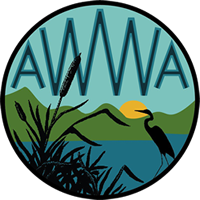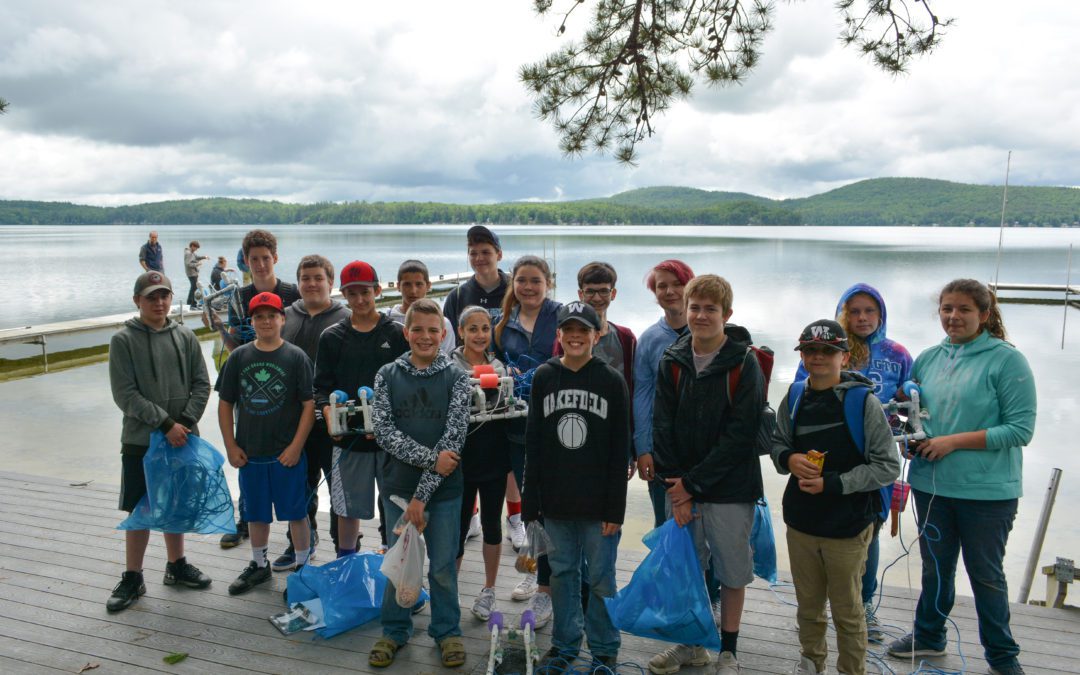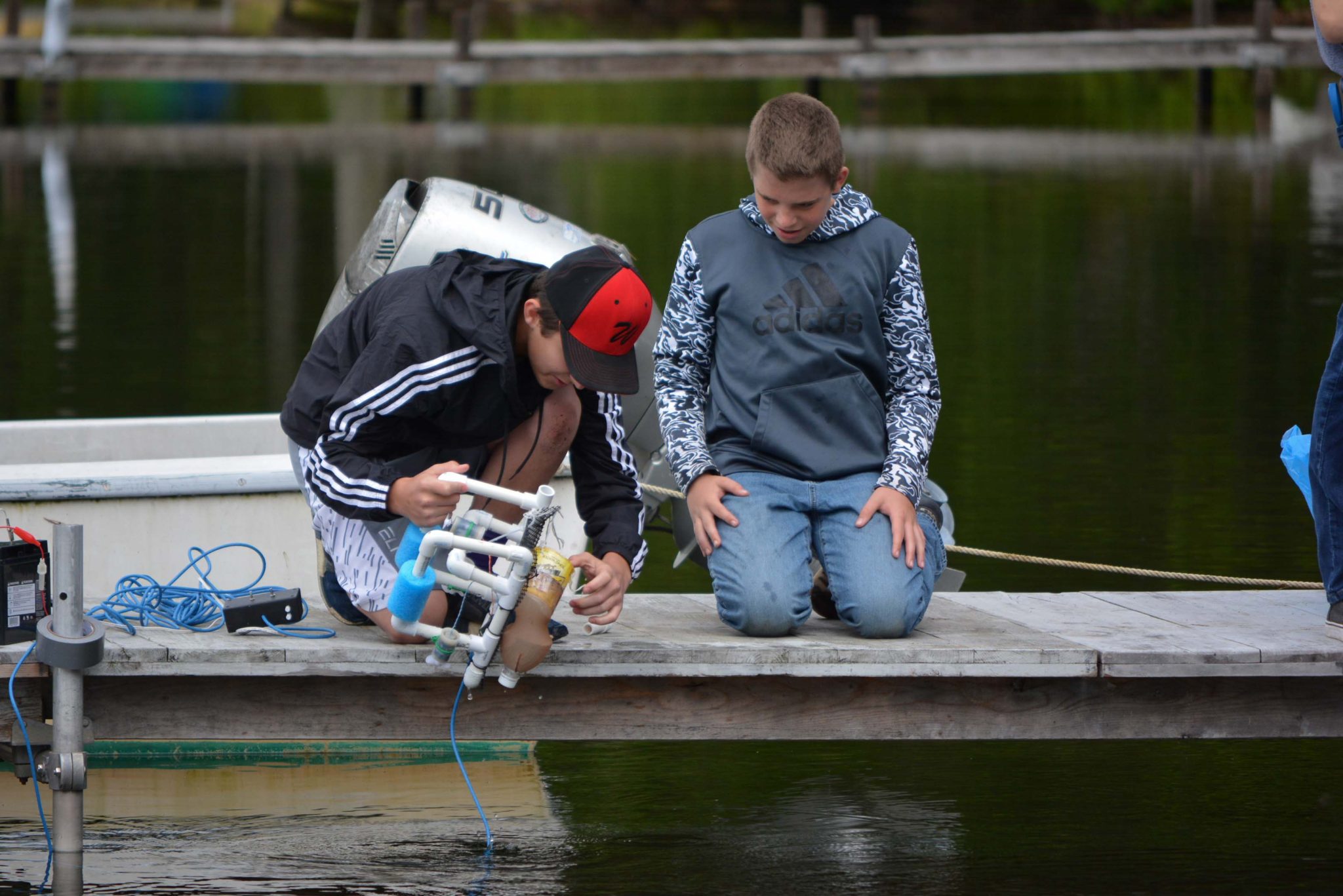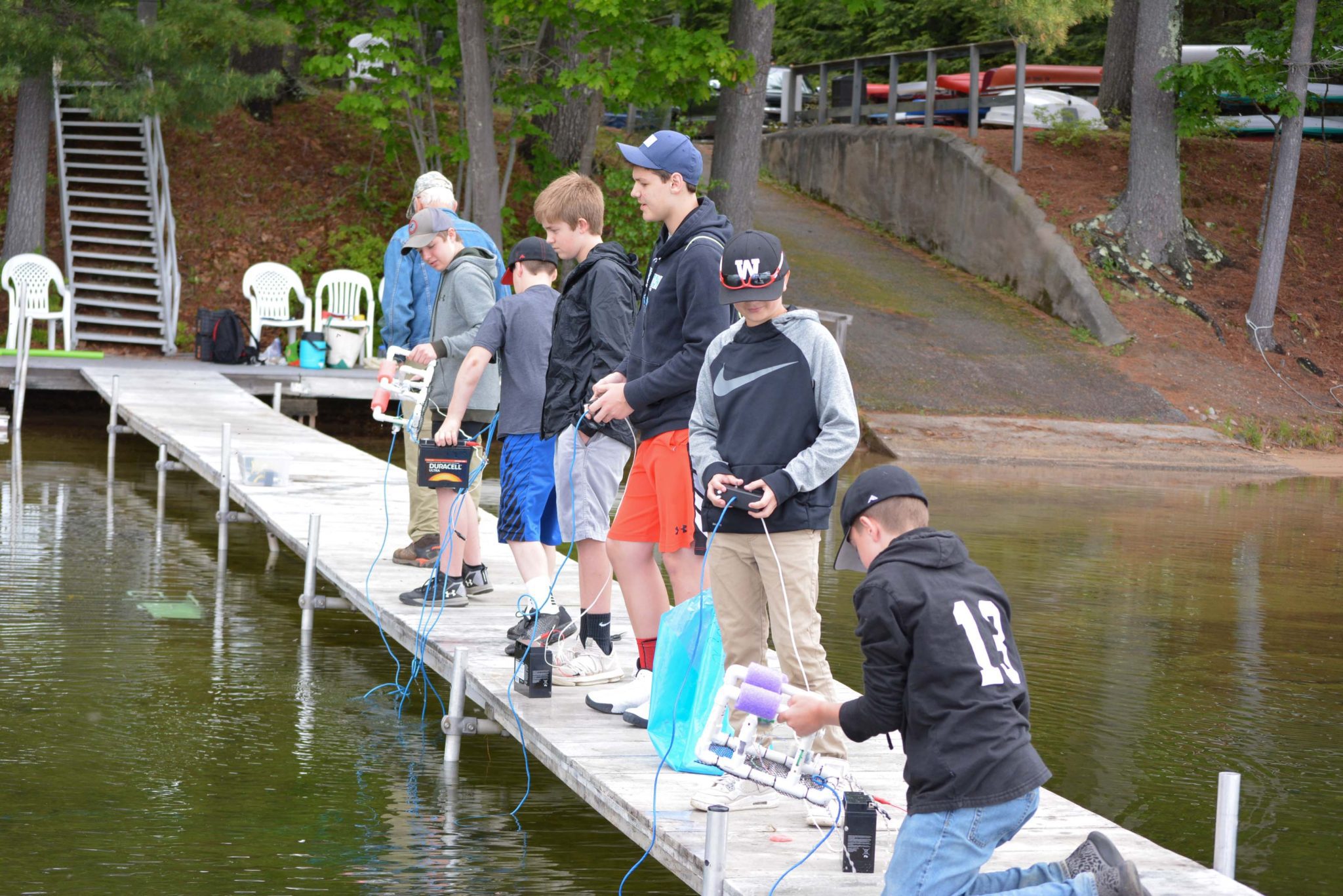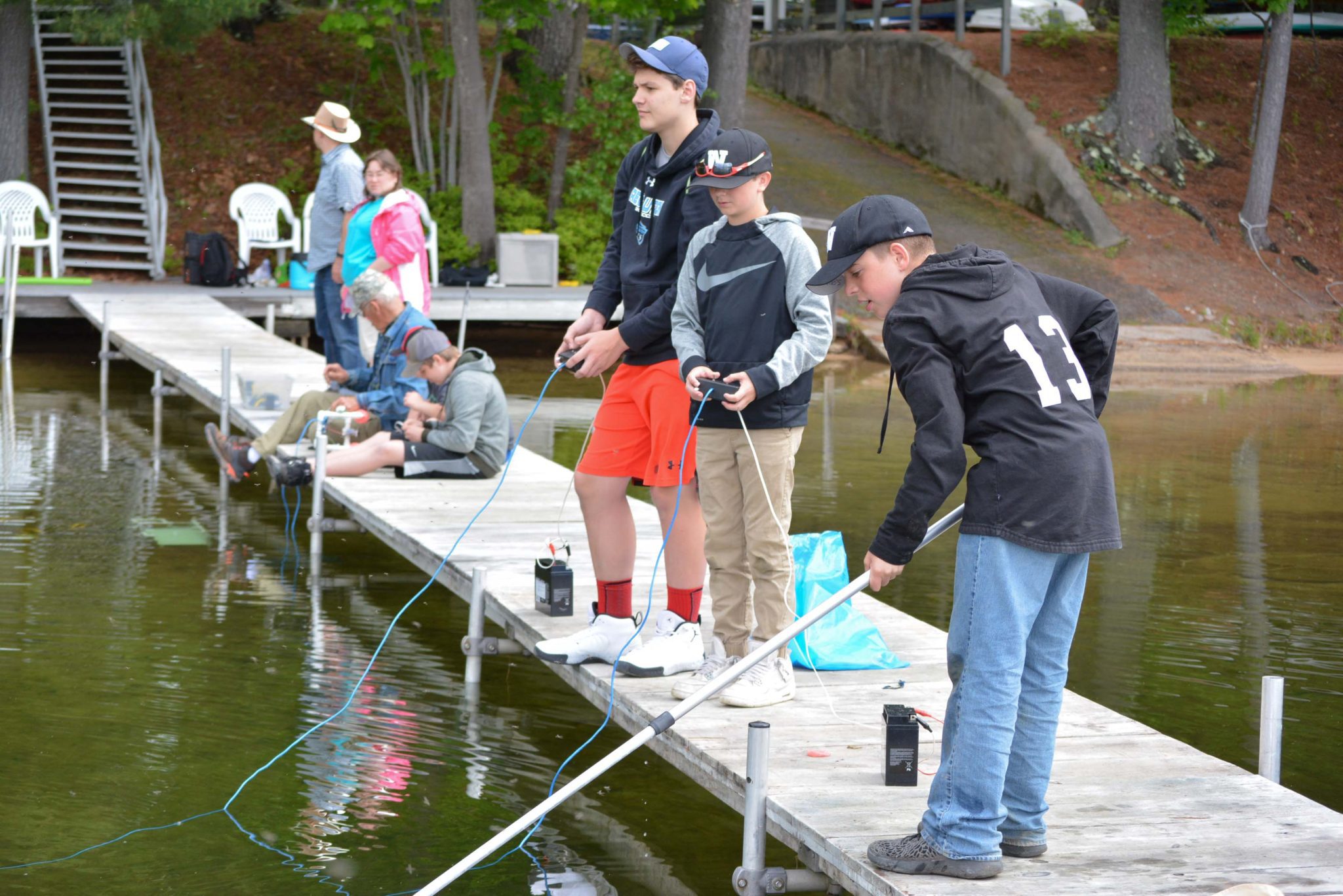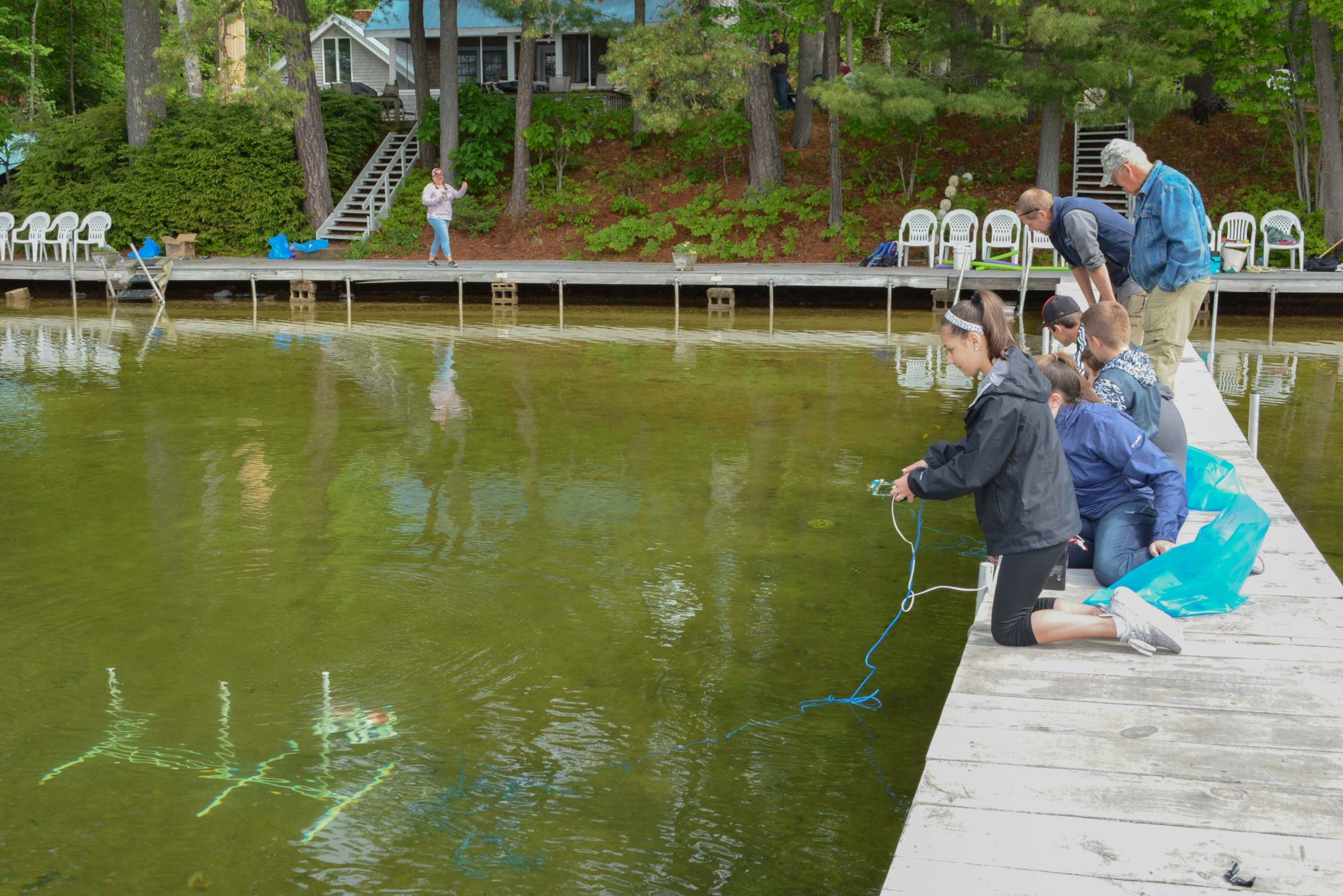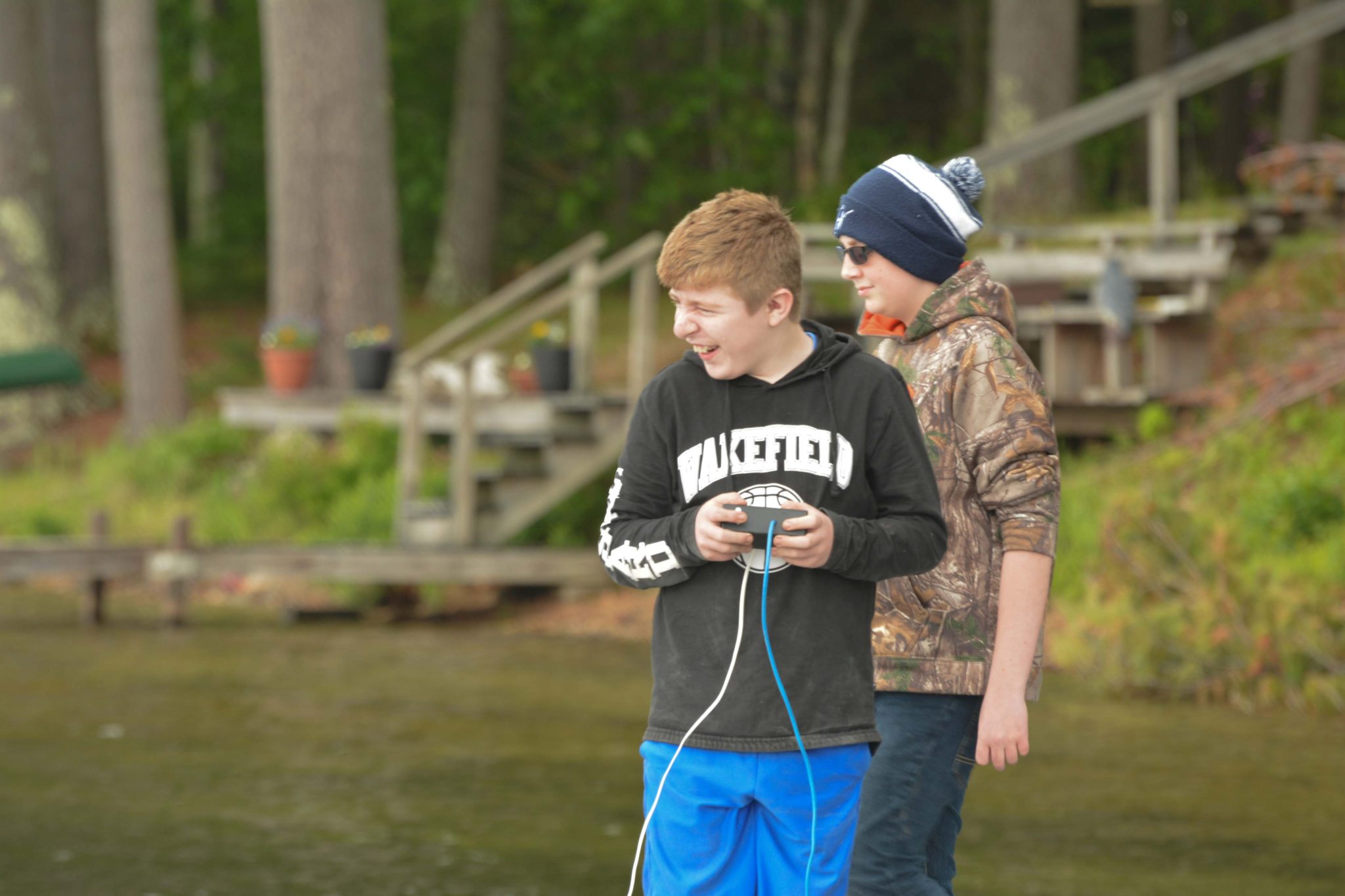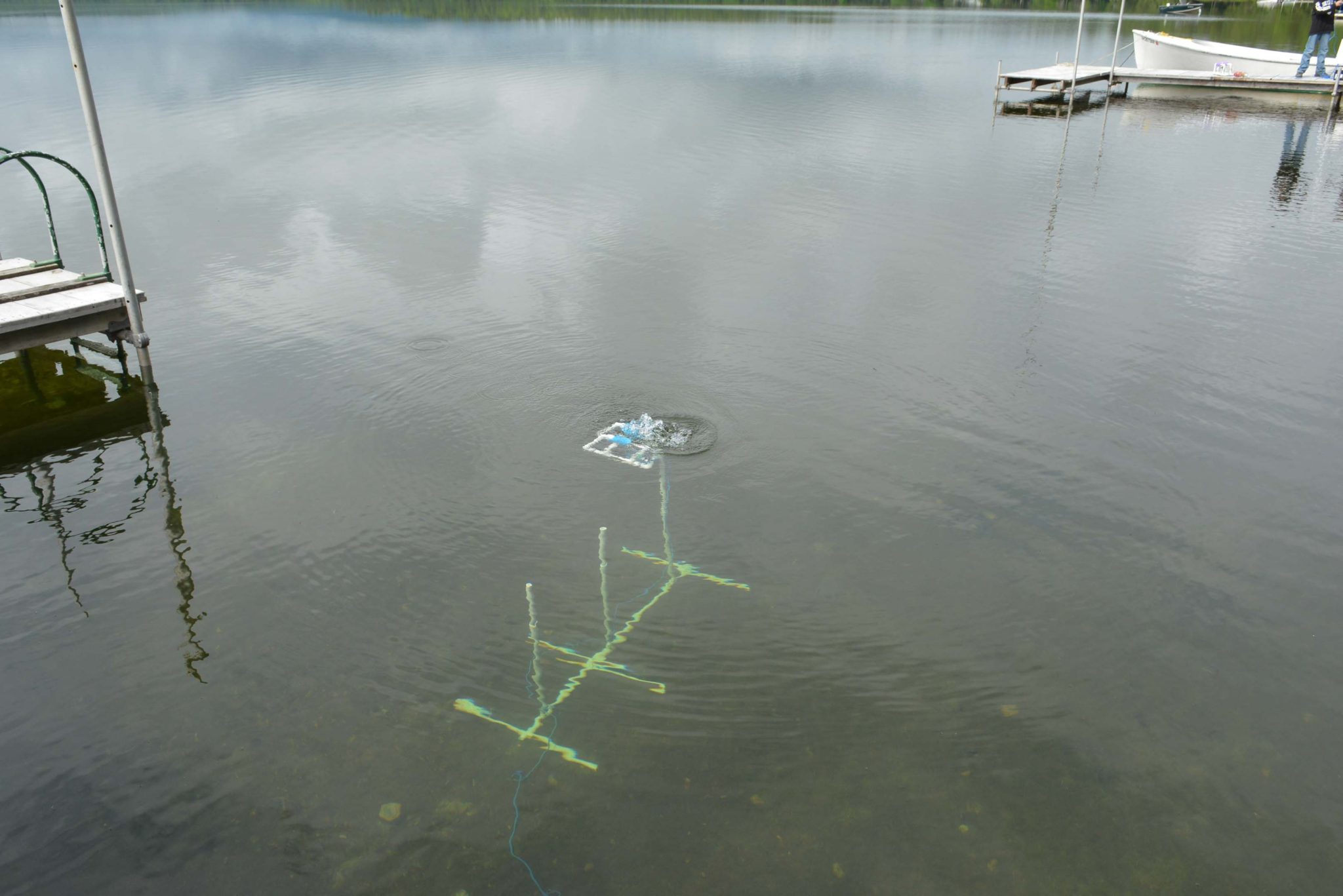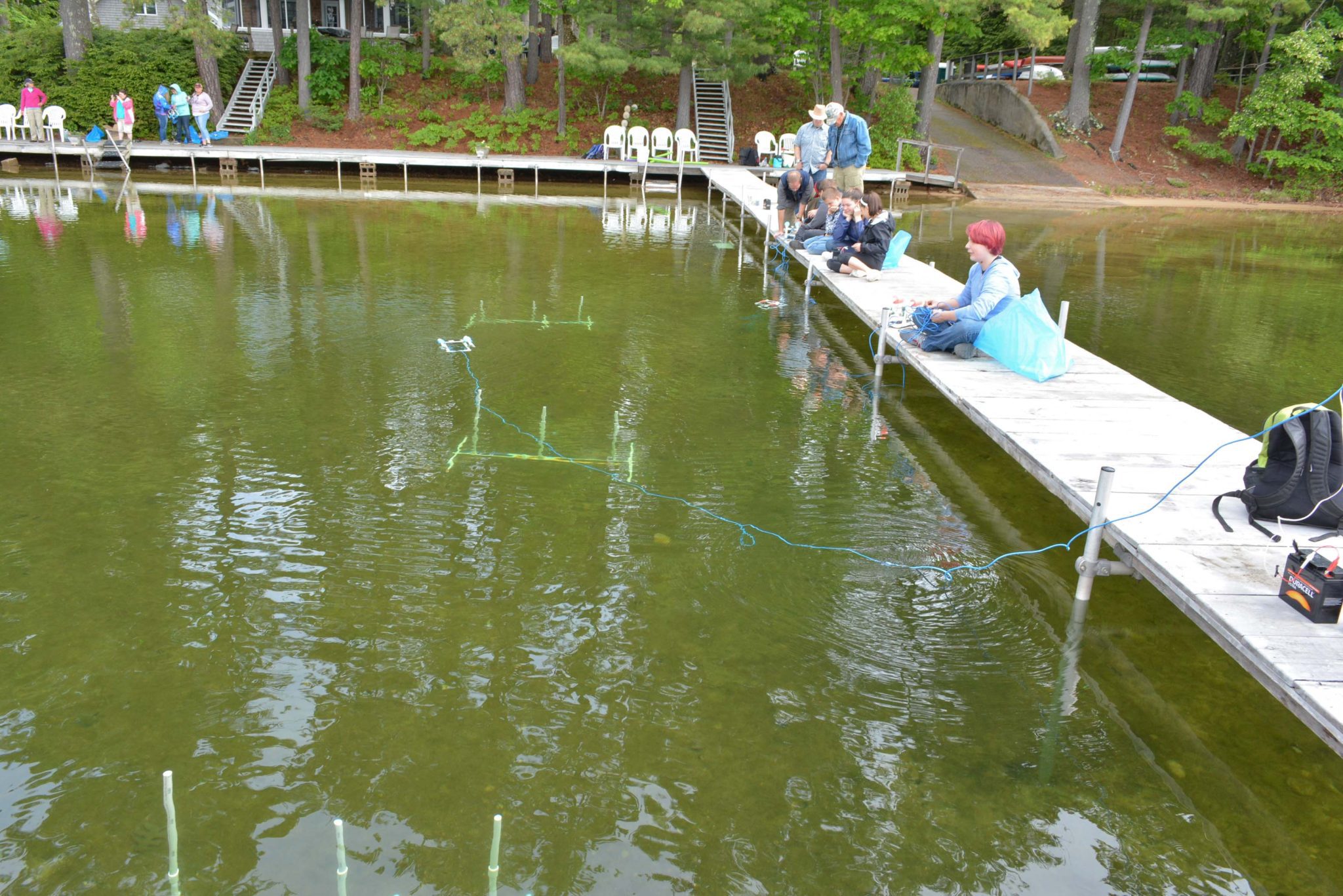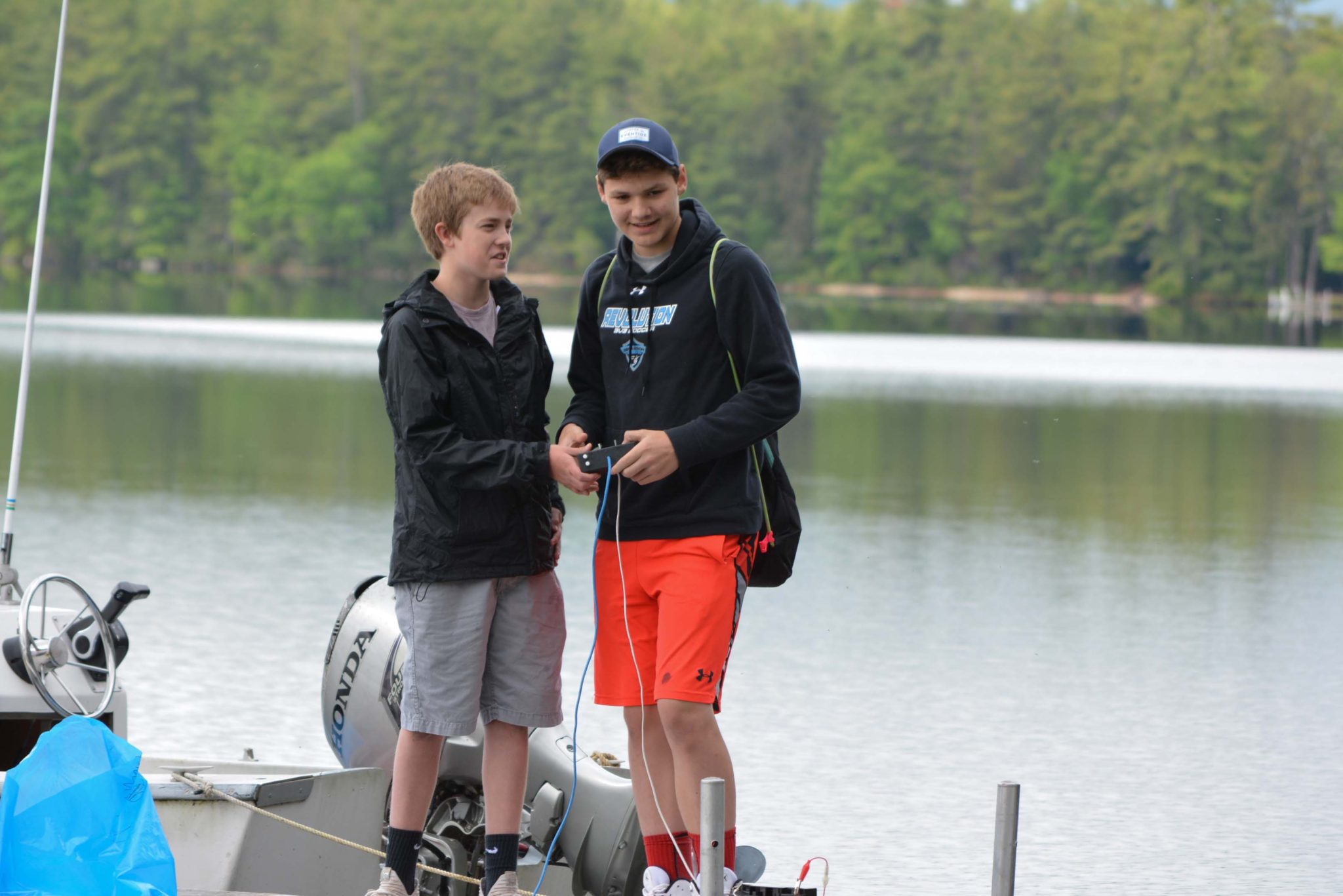For the past several years, thanks to the 8th grade teacher Gavin Kearns, the Paul School 8th grade has been participating the SeaPerch program. The Portsmouth Naval Shipyard provides funding and volunteers to help the students build these Remotely Operative Vehicles (ROVs) from a kit. This great program teaches students about science, technology, engineering and math (STEM).
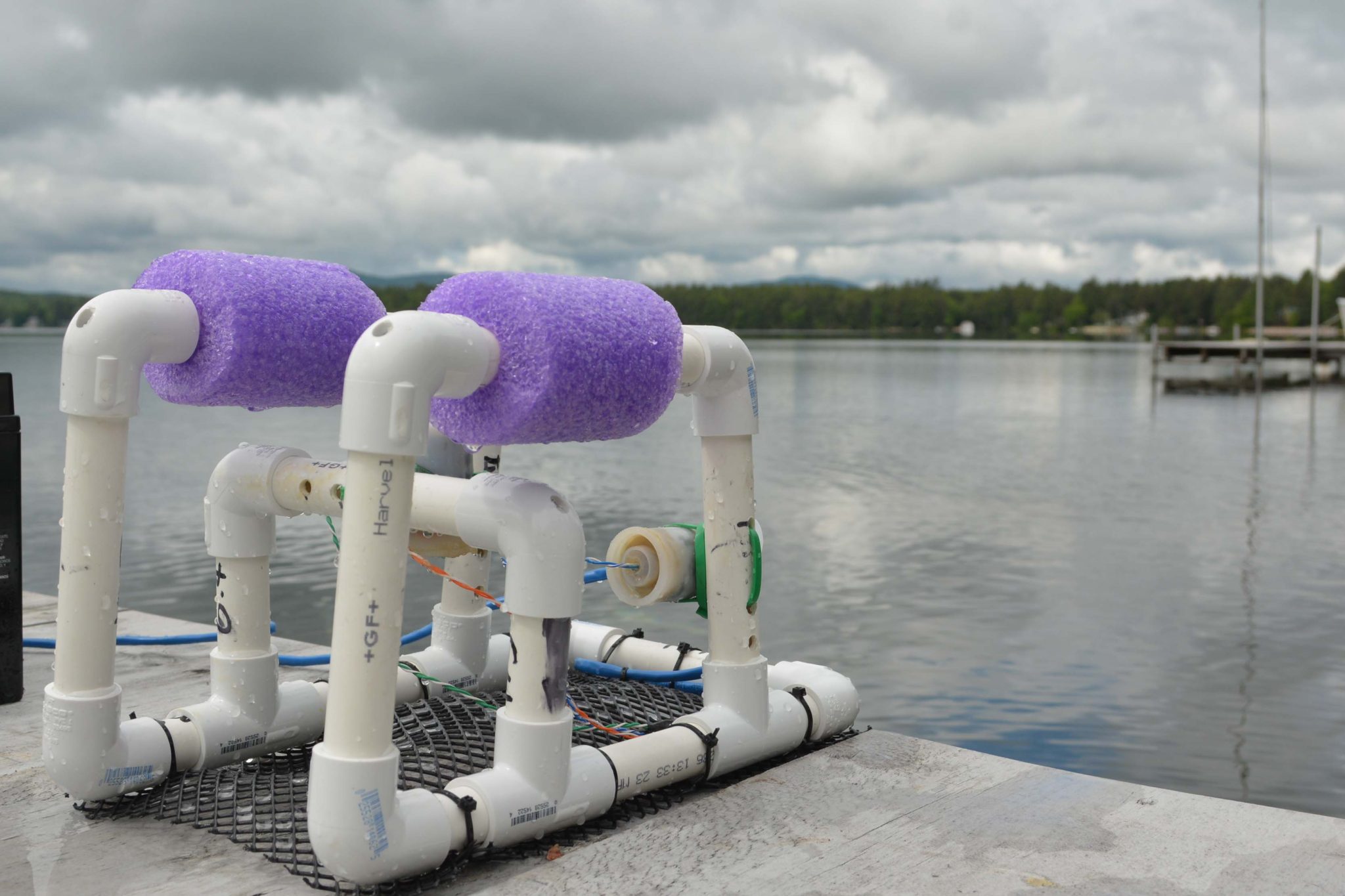
Having worked with Gavin on a regular basis, last year he reached out to AWWA to see if there was some way we could use the SeaPerches locally. In June 2017, we did a trial run field trip where we took the 8th grade to the Lovell Lake Beach with their SeaPerches. We learned what worked and what didn’t, and this year we were able to develop a better format. Our goal is always to connect students to their local water bodies, and have some fun while doing it!
This year, we decided to split the 8th grade in half and have them rotate between two locations. We partnered with Three Rivers Land Trust and Lake Forest Resort on Great East Lake to make this field trip happen.
Thanks to the generosity of the Lake Forest Resort, we had access to a large system of docks that were perfect for using the SeaPerches.
At one station, students raced each other through obstacle courses to see who could operate and maneuver their SeaPerches the quickest! They could also modify their SeaPerches in order to pick up diving rings and a ball to test their ROV driving skills.
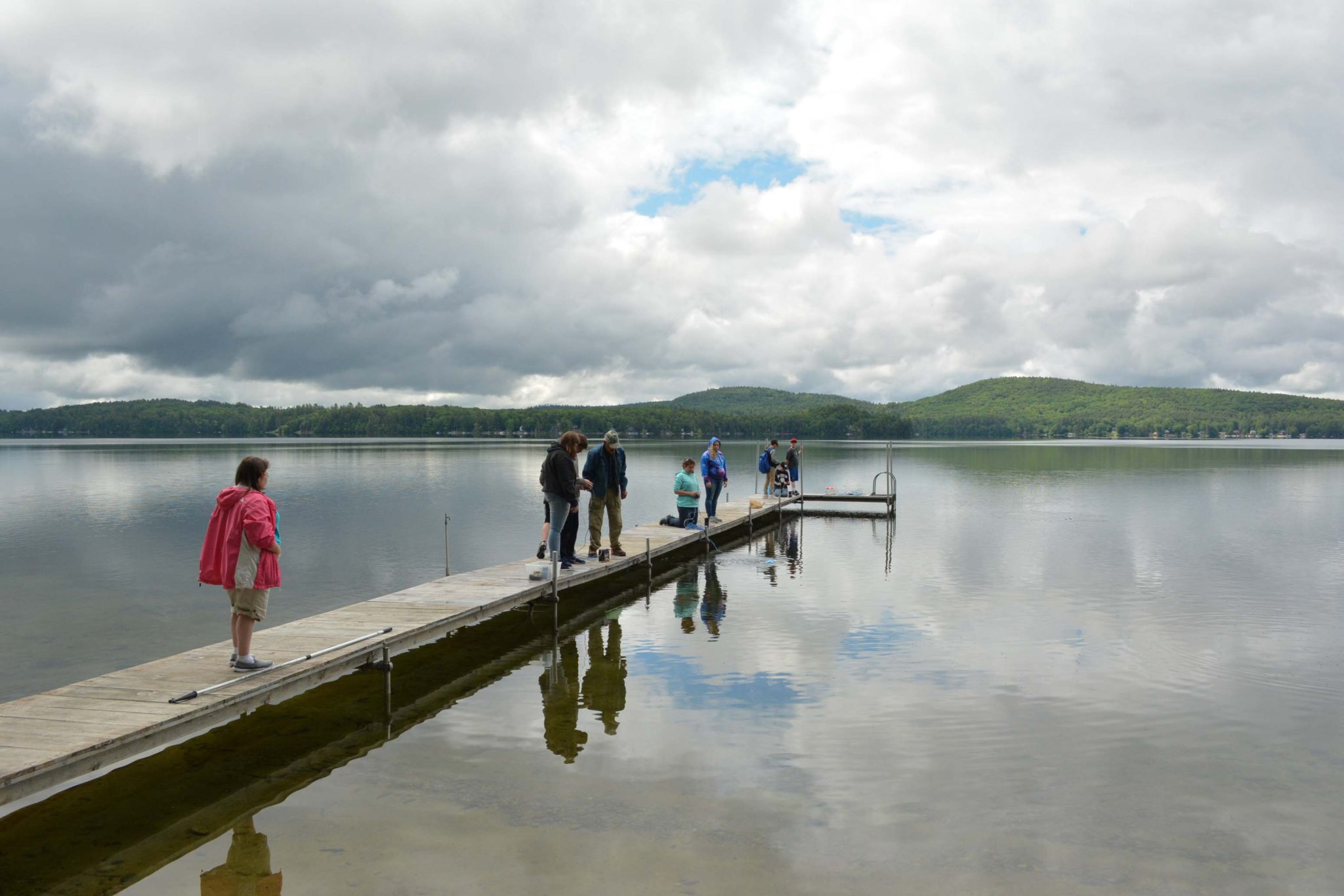
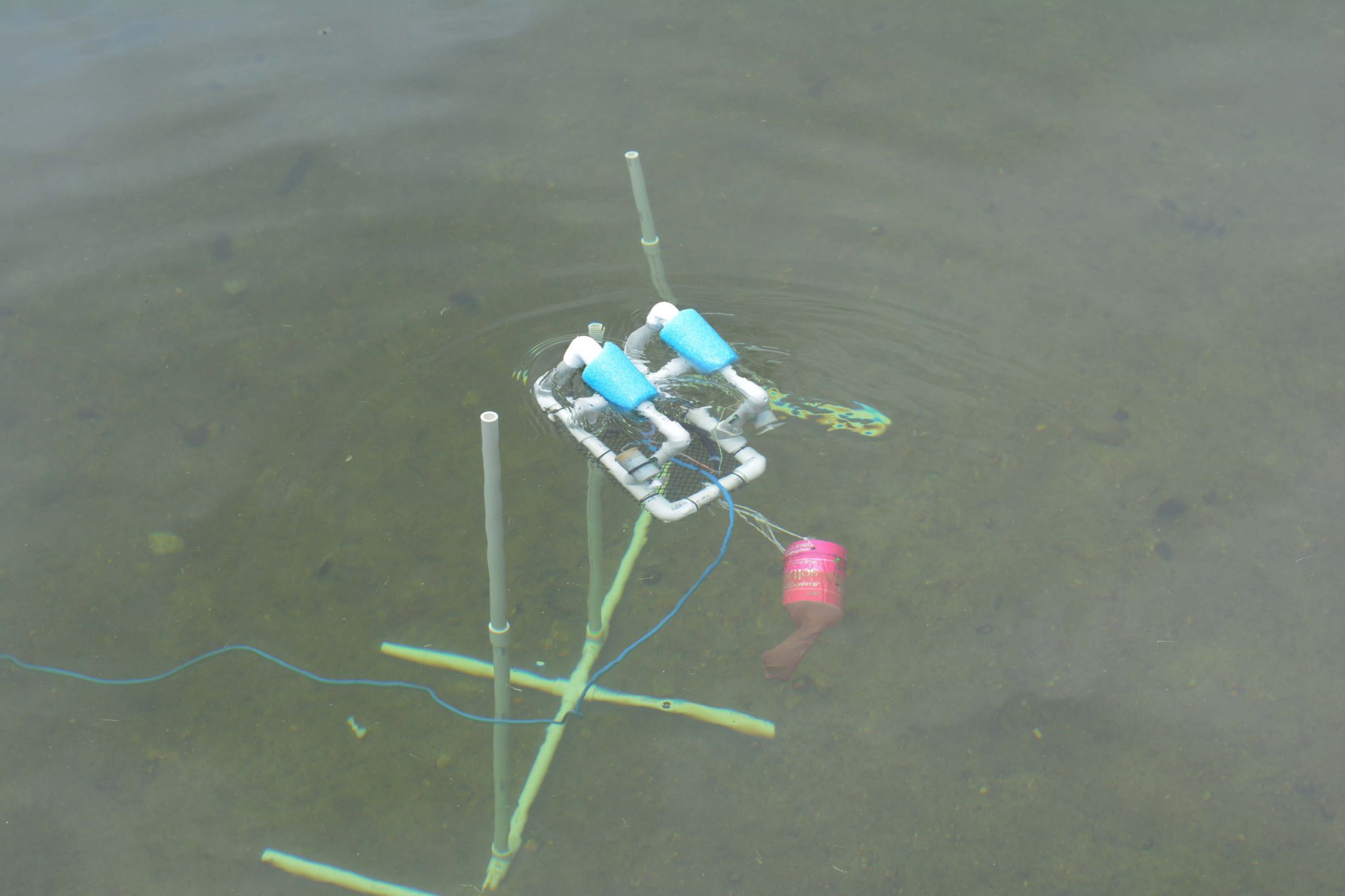
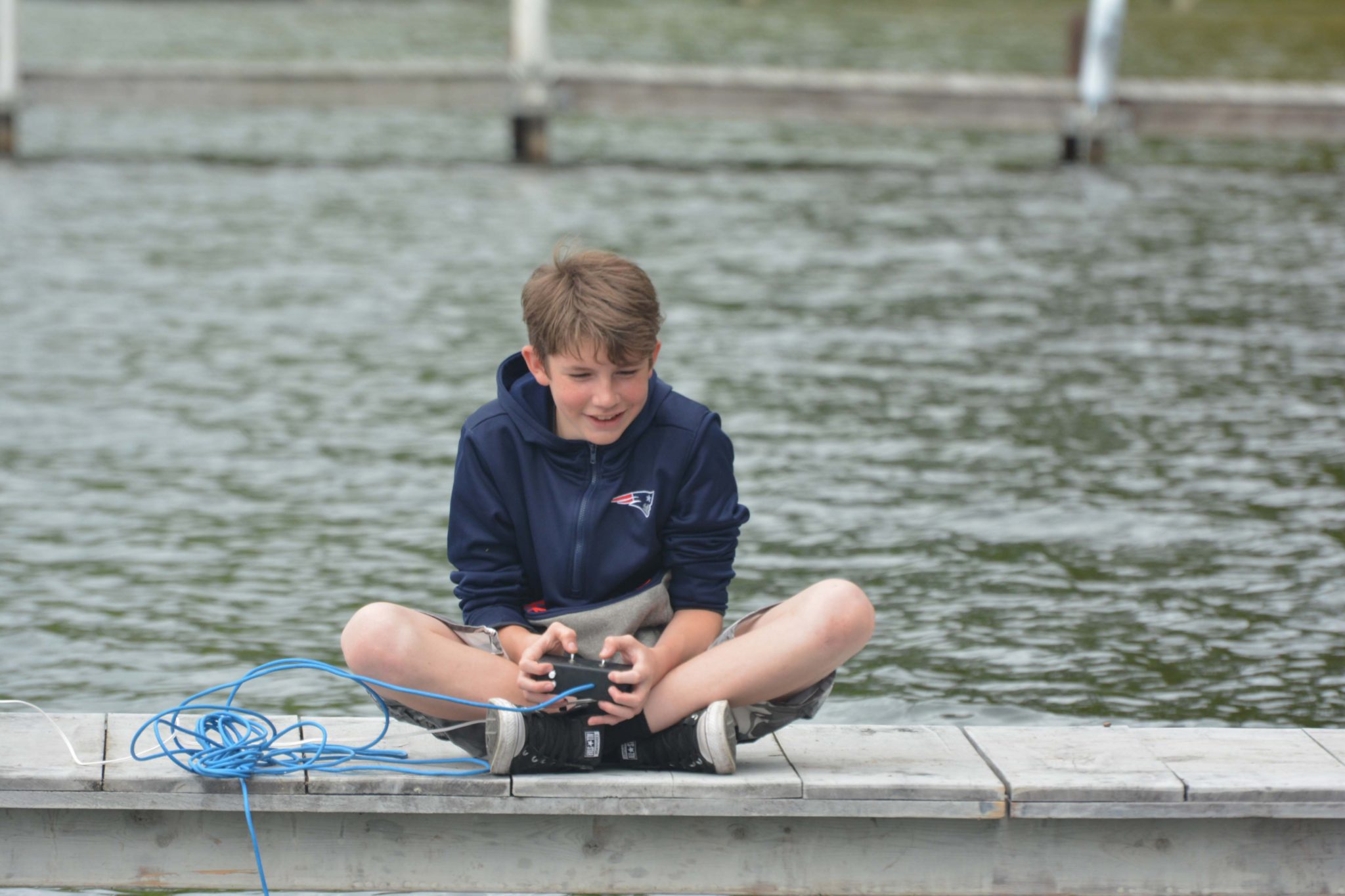
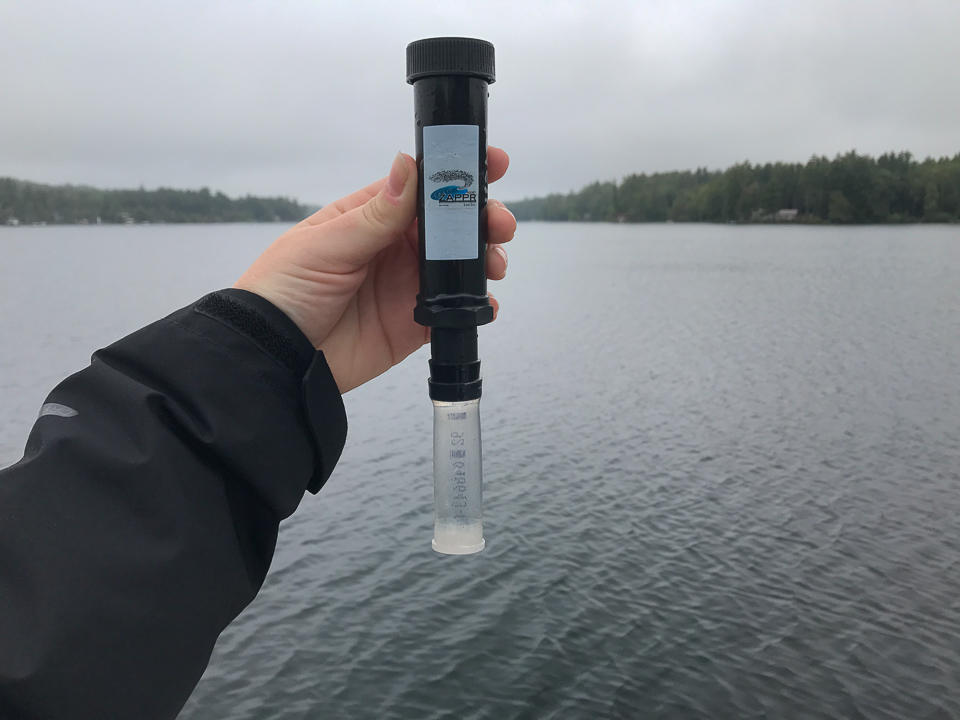
At another station they used their SeaPerches to tow plankton nets made of nylon knee high stockings and soda bottles. After they collected their samples, they used a Pocket ZAPPR™ (Zooplankton and Phytoplankton Phototactic Response) to look at what they found. The Pocket ZAPPR™ is a small tube that is half exposed to light. Phyoplankton floats to the top which is dark, and zooplankton swim to the bottom where the light is.
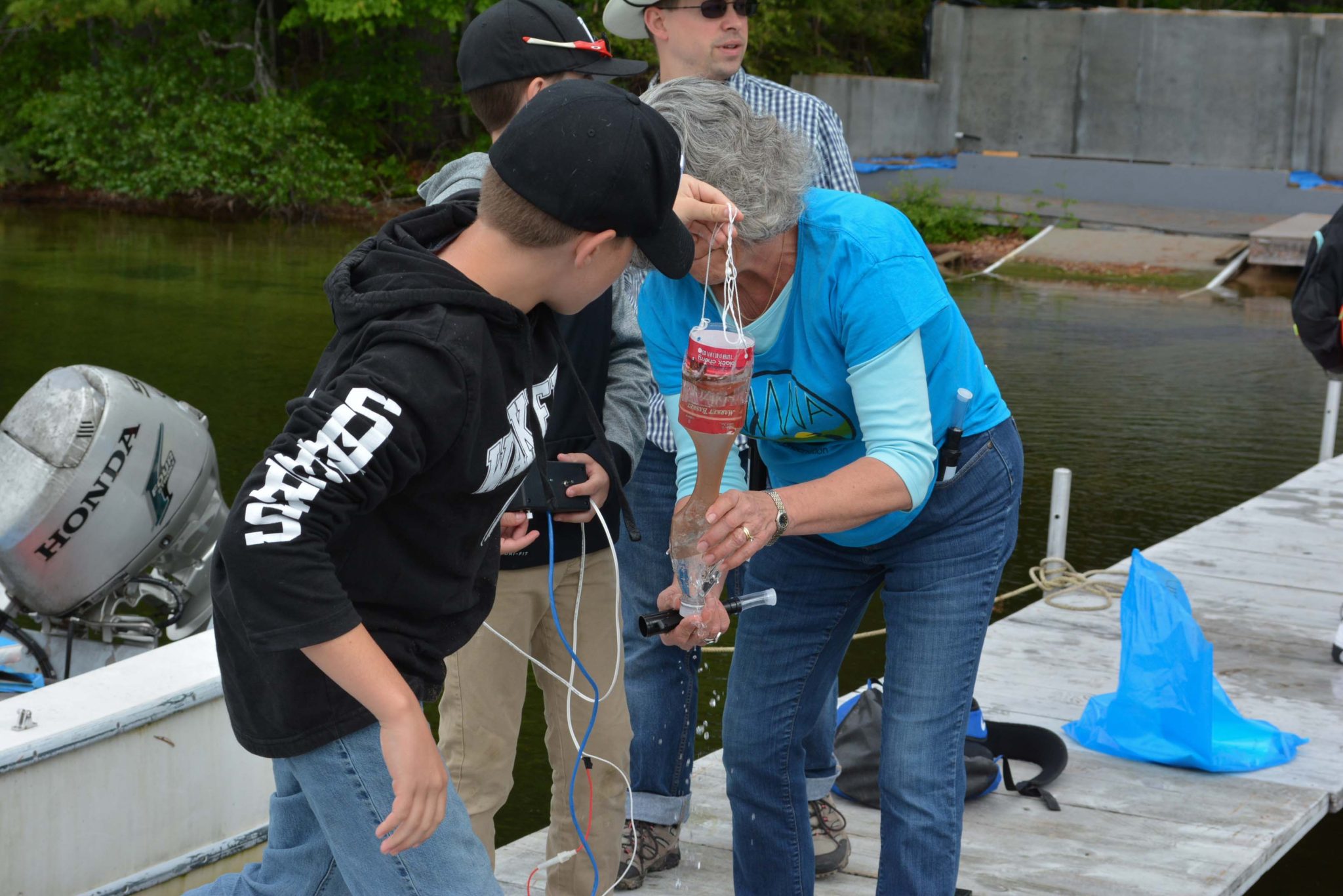
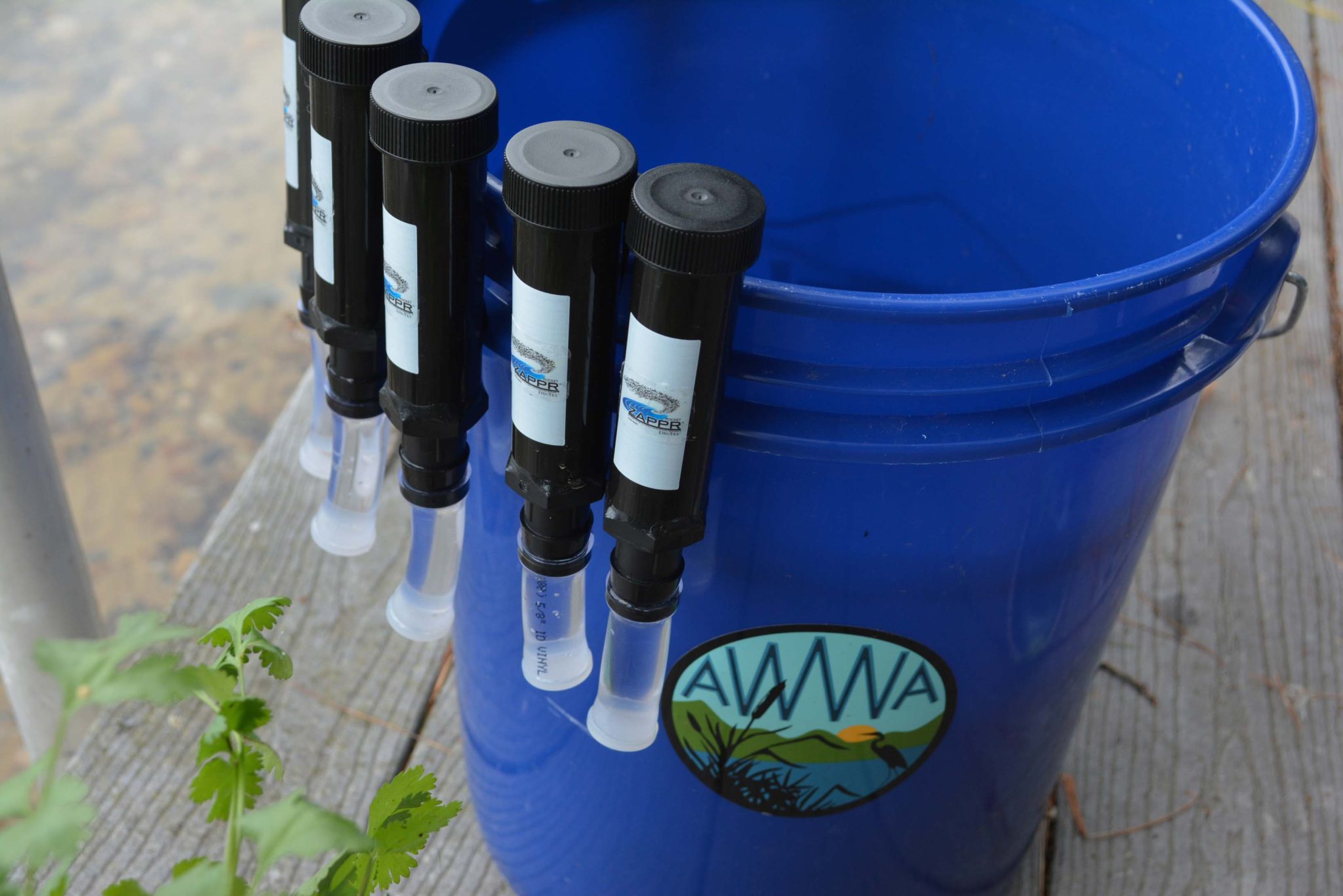
Zooplankton and Phytoplankton? Huh?
If you’re not familiar with these terms, here’s a breakdown. Phytoplankton are plankton consisting of microscopic plants, and Zooplankton are typically tiny animals.
Unfortunately, due to it being early in the summer there wasn’t much plankton in the lake yet. Some of the zooplankton you can find in Great East during the summertime include copepods, rotifers and daphnia (water fleas). As for phytoplankton, in August if you see what looks like pollen, it’s probably a Gloeotrichia.
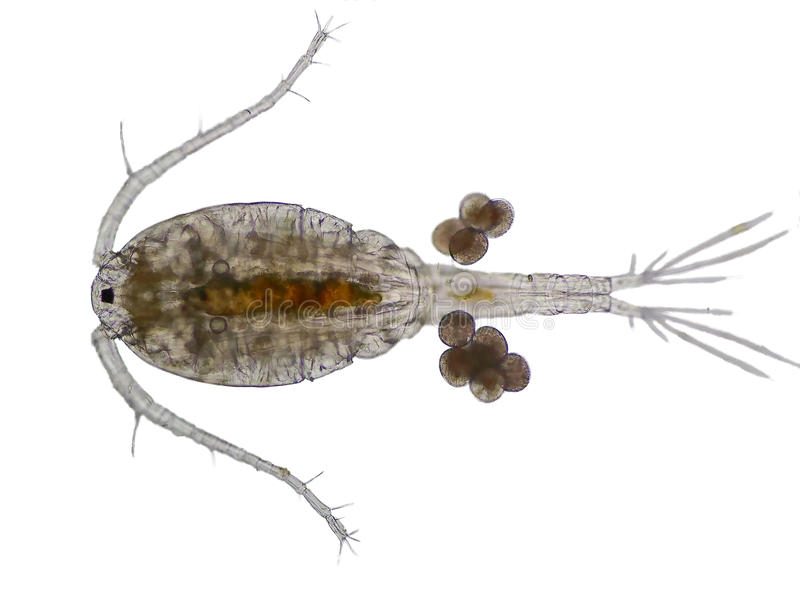
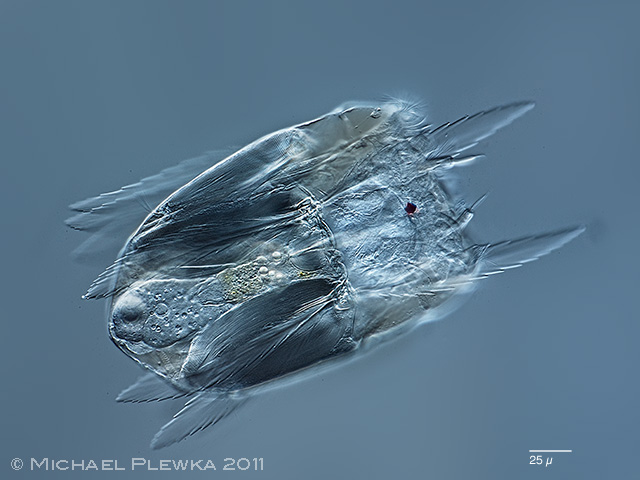
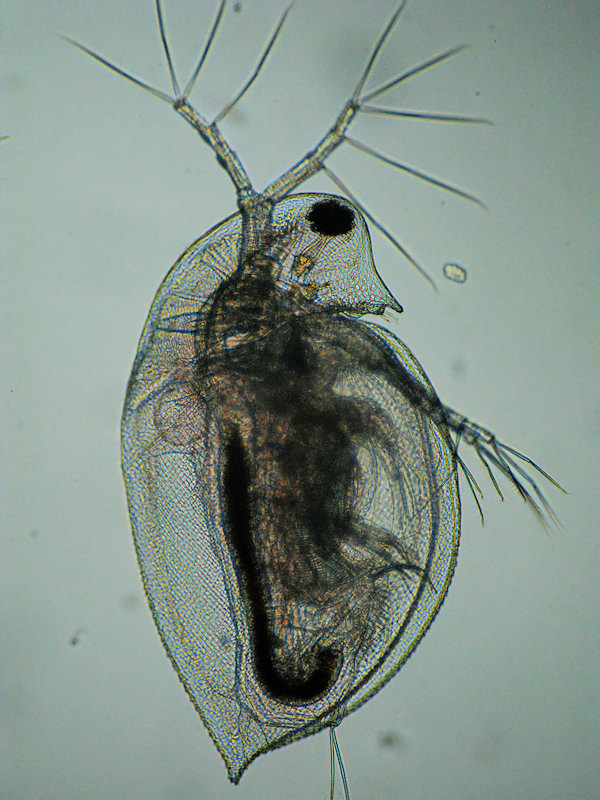
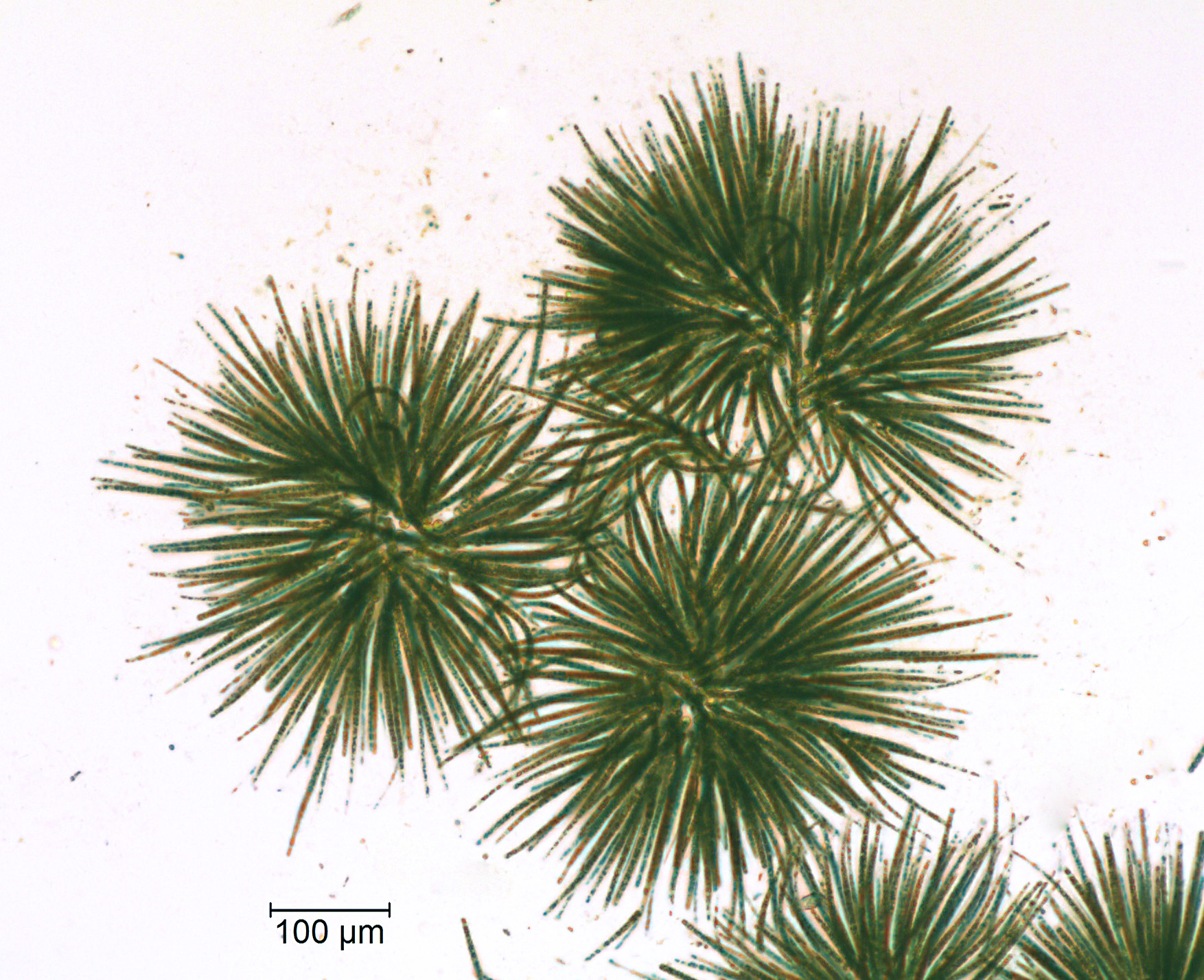
For the other part of the field trip, Three Rivers Land Trust took each group of students for a short hike up Goat Hill, a recently created town park in Acton. After a brief break, students took in the amazing views of Wilson Lake and Square Pond from the top of the hill, and gained a better understanding of watersheds, and why land conservation is so important for water quality.
Overall we had a great day. Thank you to everyone who helped make it happen, and thank you to all the volunteers!
